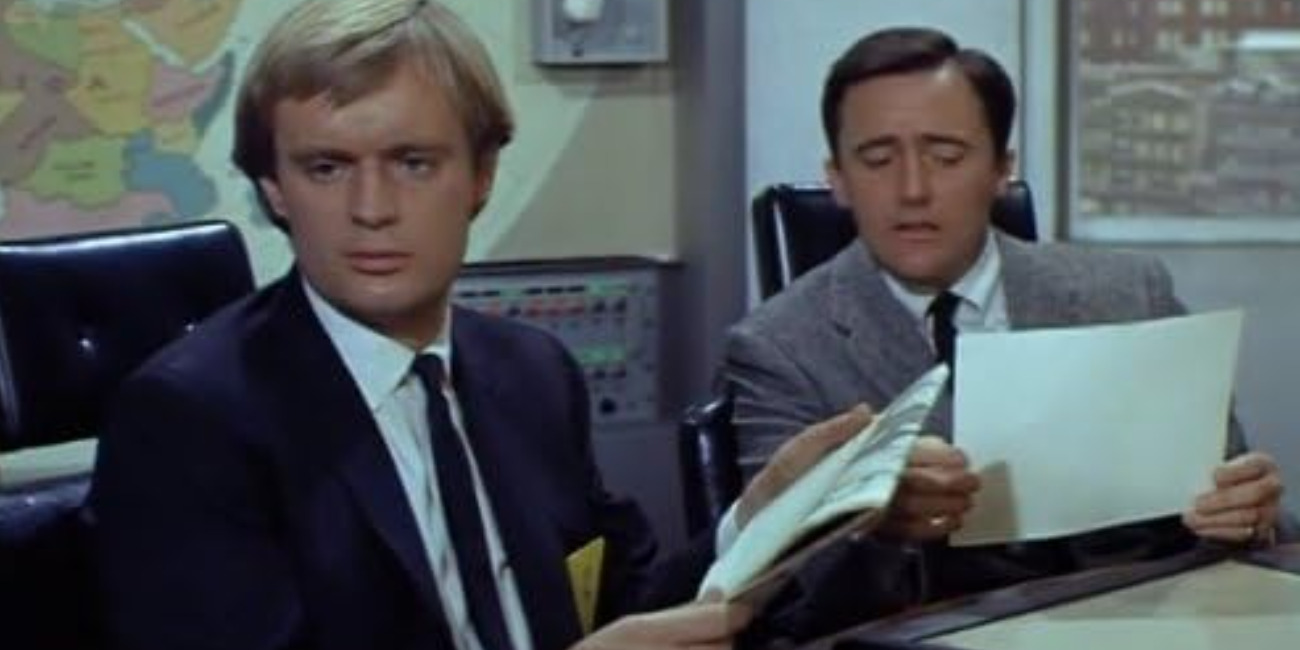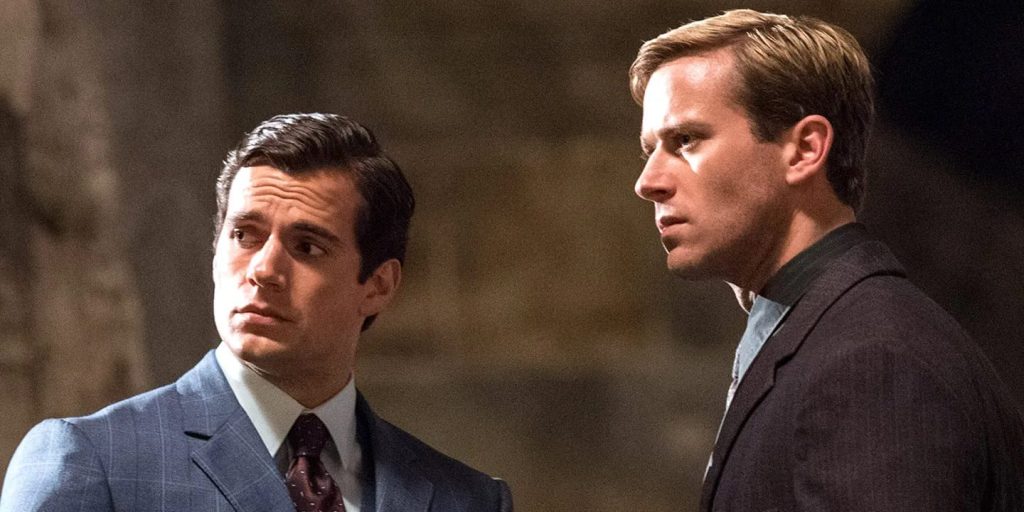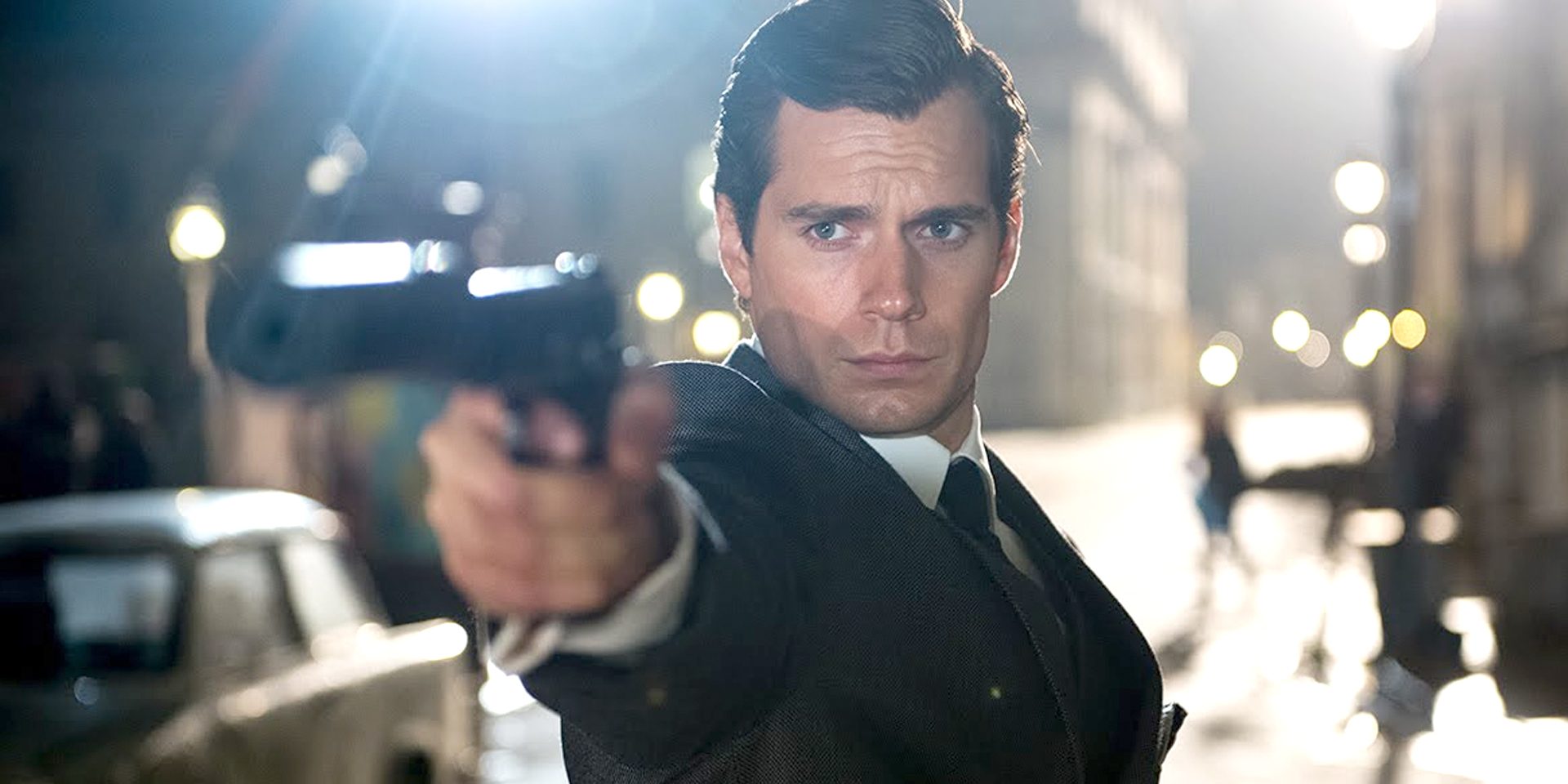The 2015 spy thriller ‘The Man From U.N.C.L.E.’ portrays the story of a joint effort between C.I.A. Agent Napoleon Solo and K.G.B. Agent Illya Kuryakin as they tackle a nuclear threat too significant to confront alone. Subsequently, the group is brought together under the enigmatic acronym of U.N.C.L.E., an intelligence division that employs the services of spies from rivaling nations to handle sensitive tasks that fall under international jurisdiction. The entity serves a unique purpose as an overarching body that cannot be claimed by any country as its own, freeing the protagonists to jump into any matter that needs dealing with swiftly!
The Origins of U.N.C.L.E.
U.N.C.L.E. is a fictional intelligence agency that operates in international waters in ‘The Man From U.N.C.L.E.’ The 2015 film is a remake of the eponymous spy show from 1964, and its titular agency plays a pivotal part in the narrative, whose full acronym stands for United Network Command for Law and Enforcement. For the original series, Sam Rolfe and Norman Felton crafted the fictional organization as an international body sponsored by competing nations such as the United States, the United Kingdom, and the Soviet Union. Ian Fleming, who also created ‘James Bond,’ was part of the development process and very influential behind the creation of Solo, the law enforcement agent whose services are availed by the enigmatic U.N.C.L.E. organization.

While conceiving the world of the narrative, inspiration was drawn from real-life sources like the United Nations, whose international interests are reflected in the multinational pursuit of U.N.C.L.E. In the show, the agency even operates in third-world countries and other nations where ordinarily American and Soviet Union Agents would not be welcome otherwise. Its connection to the U.N. is further illustrated through the location of the fictional agency’s headquarters close to the Lower East 40s of New York City, which is near the U.N. headquarters. Additionally, the agency had a similar number of leading voices running its cabinet compared to the U.N.’s five-nation veto policy.

The numerous parallels between the two organizations reportedly led to M.G.M.’s higher-ups worrying that the U.N. in the fictional agency’s acronym might be linked to the real-life organization. There were alleged protests from the U.N. who did not wish to be associated with any fictional organization. Originally, Rolfe and Felton had wished to keep the meaning behind the initials vague, but to avoid legal ramifications from any related parties, they ultimately settled upon United Network Command for Law and Enforcement, detaching any links to the U.N. However, some claims also suggest Rolfe wanted to make U.N.C.L.E. a division within the U.N., which operates as one of its arms. Regardless, the international body played a significant role in inspiring the genesis of U.N.C.L.E.
U.N.C.L.E.: An Espionage Organization With No Borders
U.N.C.L.E. can be seen as a fictional representation of several intelligence agencies being banded together as one. Although it doesn’t exist in real life, there are shared elements between its workings and other entities like the C.I.A. and Interpol. Owing to its American roots, the C.I.A. forms a central part of most espionage fiction, including the one presented in the 2015 ‘The Man From U.N.C.L.E.’ The remake depicts Napoleon Solo as a member of the eponymous agency before Alexander Waverly recruits him for U.N.C.L.E. This is a deviation from the show where Solo never works for the C.I.A. Nonetheless, in the film it leverages the importance of U.N.C.L.E. as both the C.I.A. and K.G.B. – two factions who were historic rivals – form a partnership while serving the interests of the world.

There are also apparent links to Interpol, the International Criminal Police Organization whose job is to aid in the cooperation of worldwide policing. However, Interpol does not feature the sort of espionage activities conducted by U.N.C.L.E. Additionally, the fictional agency is also unrelated to police matters, as its jurisdiction falls higher up, often dealing with far more threatening crimes that cannot be dealt with by local law enforcement. Ultimately, while there may be several differentiating factors between the agency presented in the show/movie and real-life agencies in the world, it is likely they informed a general approximation of the functions and tasks performed by U.N.C.L.E.
In the film, the codename U.N.C.L.E. is featured very briefly, teasing more adventures in the future for Napoleon Solo and his spy pals, Illya Kuryakin and Gaby Teller. Despite its many aligning elements with International and Non-International Agencies around the globe, U.N.C.L.E. is a fictional intelligence division that cannot be found in reality. Thus, the film’s depiction of the same holds no inspirations—save for the original idea presented in its source material.
Read More: The Man from U.N.C.L.E.: Is Udo Teller Based on a Real Nuclear Scientist?


You must be logged in to post a comment.